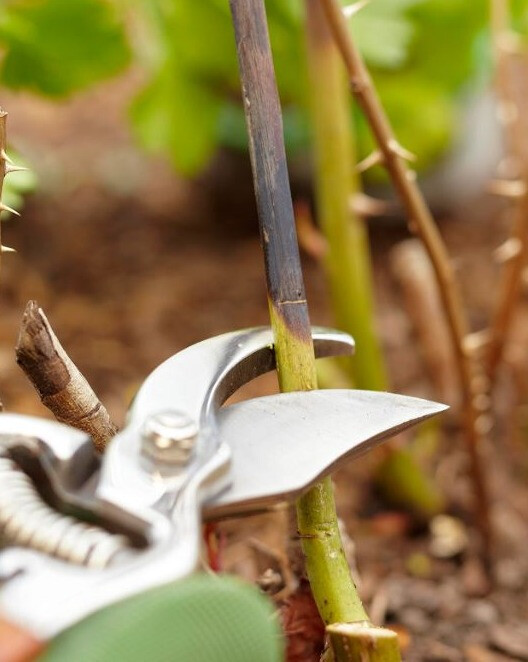
There is something both sad and ironic about intentionally creating physical separation between those in our communities. We still have other ways to connect…calls, cards, FaceTime, texts, emails, Skype, etc. However, for the follower of Christ, we desire proximity to nurture the bonds of fellowship. Social distancing strikes us as wrong. It feels antithetical to fostering authentic Christian community.
Though these thoughts are understandable, it is our care and concern for others that motivates our adoption of social distancing measures...for a season. It is, in fact, an act of Christian love to participate fully in these practices in the context of a global pandemic. While it seems counterintuitive to us, social distancing is one of the best ways for us to respond to Christ’s call to protect the “least of these” in the human family. (Matthew 25.45)
This reminds me of another counterintuitive incident a few springs back. I planted some Knock-Out Roses near the front corner of my house. I needed some cover for an area that I thought was rather bare. Len Williams suggested this type of hearty and fast-growing rose bush. He also gave me some sage advice about caring for them. He said if I wanted the plants to bloom to their full potential, I should regularly prune them rather than letting them simply follow their natural course.
I was glad he prompted me to think about pruning because that seemed counterintuitive to me. I wanted the bushes to spread and grow. Cutting them back seemed like it would work against this purpose, but experienced gardeners know that pruning most bushes or shrubs will, in the long run, enhance their beauty and vitality.
Jesus used pruning as a metaphor for the way God interacts with us: "I am the true vine, and my Father is the gardener. He cuts off every branch in me that bears no fruit, while every branch that does bear fruit, he prunes so that it will be even more fruitful" (John 15.1-2). In this statement, Jesus makes clear there is more than one reason to prune - God cuts off branches that don't bear fruit, but He also prunes branches that do.
Cutting off what is lifeless makes a lot of sense, but we have to understand a bit more about plants and the way they grow to understand why cutting off what is lively makes sense, too. As I understand it, once a blossom has died, a plant will continue to send nourishment to it. If you prune back the branch, the plant can store up its energies to produce more new blooms. So, in that sense, pruning is the kindest cut because it is cutting back in order to have more. Pruning literally rejuvenates by allowing the vine to produce new growth rather than spending its nourishment on gangling branches that are no longer fruitful.
Sometimes, like now, it can be confusing when God permits pandemics…and, even ends something that has been truly fruitful. It can cause one to second-guess the good work that has been accomplished or doubt God's faithfulness. If a work is bearing fruit, why would He allow it to end? The best answer seems to be that God is the One Who "changes times and seasons" (Daniel 2.21). He doesn't let good things go on forever just because they are productive. He prunes our lives, our vocations, our ministries, and our relationships so they can become even more fruitful in a new season.
Pruning can be dangerous when it is done by an amateur like me. One website warned, "In most cases, it is better not to prune than to do it incorrectly." Another advised that you not prune while “angry”. I'm sure that many an angry gardener has taken out his frustration through overzealous pruning! However, God is not an amateur. He is the wisest and most experienced of gardeners. He isn't too timid to prune a fruitful branch because He wants the vine to flourish.
When we realize God may be pruning something in our lives, may we expect that He has beautiful and vibrant things He wants to produce in us, if we wait and allow Him to bring forth His fruit in its season.
~Pastor Mullinax







